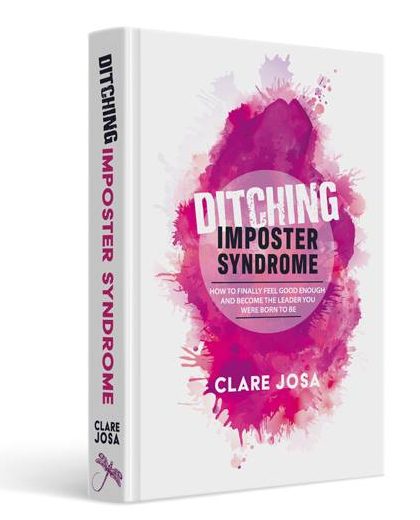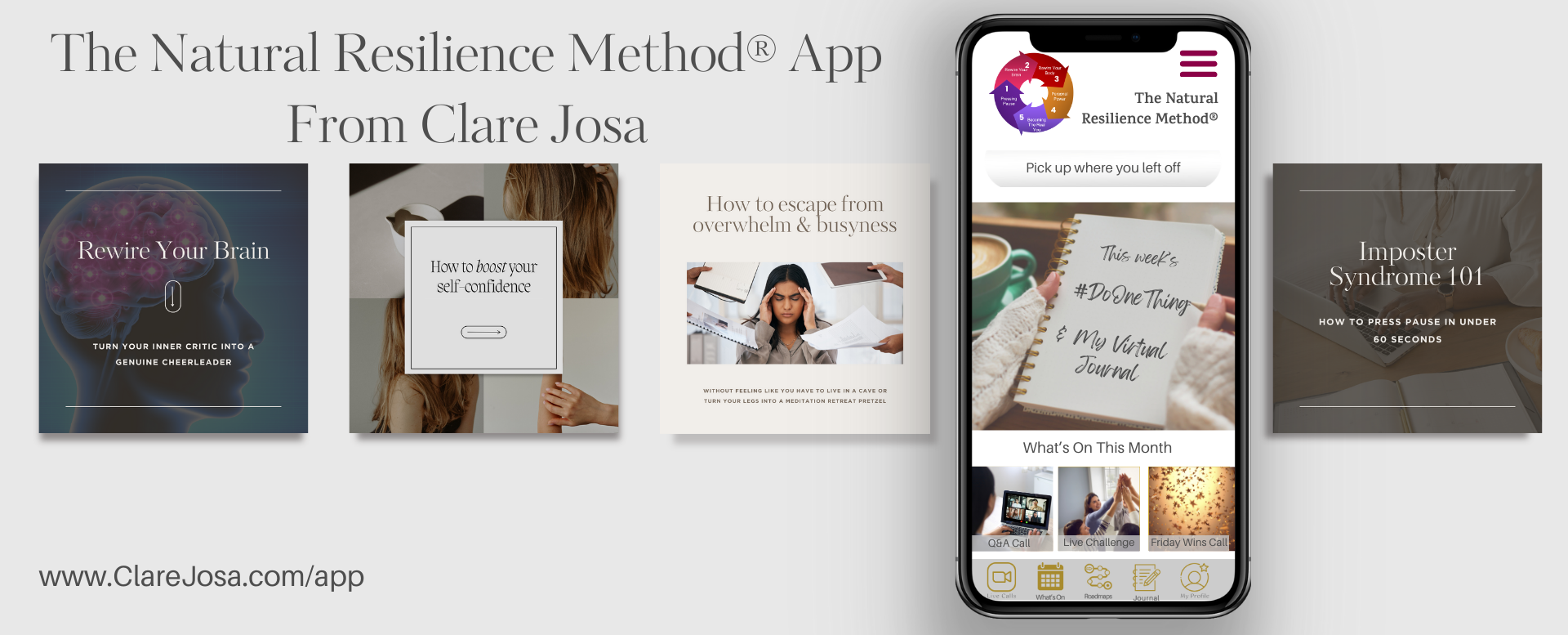I'm curious: do you talk about 'My Imposter Syndrome'? Here's why that might not be such a good idea...
One of the common pieces of advice on the internet about Imposter Syndrome - and the inner critic in general - is to give it a name. People talk about 'my Imposter Syndrome'. Coaches talk about 'your Inner Imposter'. But this is a high-risk option, if what you want is to finally set yourself free from Imposter Syndrome, rather than relying on the Imposter Syndrome bridge of coping strategies.
Firstly, I don't even talk about people having Imposter Syndrome, let alone owning it or it being part of them. Instead, I talk about them running Imposter Syndrome.
Why?
Because as soon as you make Imposter Syndrome feel like part of you, you subconsciously get more attached to it. And it's harder to clear out.
And there are few faster ways to make something feel like part of you than:

My Imposter Syndrome feels like something that is truly precious to us, something that we wouldn't want to 'lose'. And you can imagine how that makes it harder to let it go!
Imposter Syndrome is something that runs at the deep, identity level (find out more about the Imposter Syndrome Iceberg), but we often don't notice it until our self-talk kicks off. That's why we tend to think that Imposter Syndrome is caused by our thoughts - but it isn't. They are simply the surface-level symptoms of what's really causing us to self-sabotage. It's why mindset-level work for Imposter Syndrome is simply a sticky plaster, rather than a cure.
But if we've named 'our Imposter Syndrome' and made it something that belongs to us, we lose our objectivity. We're actually reinforcing it as part of our identity. We become emotionally attached to something that causes us pain. And it makes it harder to set ourselves free from it.
It also allows Imposter Syndrome thoughts to become a badge of honour.
Oh, MY Imposter Syndrome is called Fred!
Oh, but MY Imposter Syndrome is called Fluffy Bunny!
Oh, well, MY Imposter Syndrome is so bad that I call it the psycho-nightmare!
All of this reinforces the subconscious message that Imposter Syndrome is a normal, inevitable and incurable part of daily life - which is one of the many Imposter Syndrome myths that keep people stuck, no matter how hard they try to set themselves free from it.
What's The Alternative To Talking About 'My Imposter Syndrome' And Giving It A Name?
I invite you to try this on for size!
For the next sixty seconds, tell yourself a story about a recent incident with 'my Imposter Syndrome', using its name, if you have given it one.
When the minute is up, close your eyes and notice how your body feels. How close does 'my Imposter Syndrome' feel? How easy or difficult might it be to set yourself free from it? (Your body will tell you - pay attention for signs of tension).
Now, shake that off!
And for the next sixty seconds, tell yourself a story about the same incident, but this time talking about running Imposter Syndrome, and how you were simply thinking Imposter Syndrome thoughts.
When the minute is up, close your eyes and notice how your body feels. How close does 'my Imposter Syndrome' feel? How easy or difficult might it be to set yourself free from it? (Your body will tell you - pay attention for signs of tension).
Could you feel the difference?
If you've been talking (to yourself or others) about 'My Imposter Syndrome' and even giving it a name, is it time to let that go now?
If an Imposter Syndrome thought comes up, simply label it as such:
"Ok, that was an Imposter Syndrome thought."
And let it go, moving on to the next thought. [Stuck with the how-to on this? My free ABC training teaches you how to turn around negative self-talk in under sixty seconds.]
Want to find out about other common mistakes people are making with dealing with Imposter Syndrome, which can accidentally keep them stuck? Join me for my upcoming masterclass on this!
imposter syndrome masterclass with clare josa
Three Super-Common Support Strategies That Could Be Making Imposter Syndrome Worse During Lockdown
What every coach, mentor and line manager needs to know.
And if you've been using the phrase 'My Imposter Syndrome', or even giving that self-sabotaging negative self-talk a name, please don't beat yourself up! With all of the advice out there on the internet, it's an easy trap to fall into. And the second best time to stop doing that is today!
Want to find out more? If you've already got my book - Ditching Imposter Syndrome - you'll find a whole chapter on the Imposter Syndrome Myths and mistakes that keep people stuck, starting on page 67. If you've got the eBook version, search for "Myths: The Good, The Bad & The Downright Ugly".
And here are some of the most common Imposter Syndrome myths - and what you can do about them! I'll be adding more articles to this list over time, so keep an eye on this page for more.
And I'll also be letting people know, via my newsletter: Imposter Syndrome Inspiration.
x Clare
P.S. Want to know which particular myths have been keeping you stuck? Both the universal and the personal ones? Already got Ditching Imposter Syndrome? The exercise on page 169 (Search: 'Exercise: How To Spot Your Limiting Beliefs') holds the answer.
Simply swap out the part "I haven't done that yet" for "I haven't ditched Imposter Syndrome yet" in the self-mentoring question in that exercise and your favourite subconscious myths will be revealed!
P.P.S. Want to learn more about how to help people to set themselves free from Imposter Syndrome? Become a Certified Imposter Syndrome Mentor.


